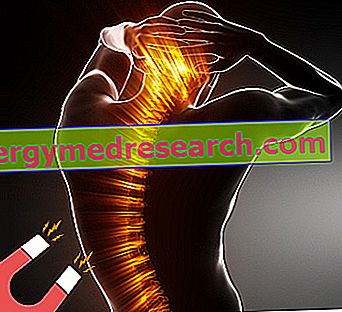Related articles: Hypercholesterolemia
Definition
We speak of hypercholesterolemia when there is an excess of cholesterol in the blood.
Cholesterol is a substance present throughout the body and necessary for life; it is in fact a very important component of the plasma membrane, which delimits cells, and participates in the synthesis of steroid hormones, bile and vitamin D. However, when it is present in excess, cholesterol can cause serious health problems. In fact, hypercholesterolemia is one of the main risk factors for the development of cardiovascular diseases.
In particular, the most dangerous situation occurs when cholesterol transported by low-density lipoproteins or LDL, commonly called "bad cholesterol", increases above all. In fact, if in excess, LDL cholesterol tends to accumulate on the walls of blood vessels, forming thickenings and plaques; these deposits hinder the correct flow of blood and stiffen the arteries, favoring vascular ischemia, vessel ruptures and hypertension.
Unlike bad cholesterol, HDL cholesterol ("good cholesterol" carried by high-density lipoprotein) lowers cardiovascular risk; this is because HDL particles help cleanse the body of cholesterol, which they capture in the periphery, transporting it to the liver for its elimination with bile.
Total blood cholesterol should be less than 200 mg / dl; values between 200 and 250 mg / dl are considered at the limit, while levels above 250 mg / dl are considered high. The ideal level of LDL in the blood should be less than 130 mg / dl. For those who have more than one risk factor for cardiovascular disease, however, this limit goes down.
High levels of cholesterol in the blood must be treated with diet (avoiding, in particular, fatty meats, offal and eggs), smoking cessation, regular exercise and with drugs that suppress the synthesis of cholesterol or interfere with the absorption of cholesterol from the gastrointestinal tract.
An increase in total cholesterol in the blood may be due to genetic reasons (eg familial hypercholesterolemia), hypothyroidism, liver diseases, disorders that lead to biliary stasis, nephrotic syndrome, chronic renal failure, alcoholism, diabetes mellitus and drug intake, such as corticosteroids, contraceptives and certain antibiotics.
Possible Causes * of Hypercholesterolemia
- Primary biliary cirrhosis
- Liver Cirrhosis
- Diabetes
- dyslipidemia
- Hepatitis
- Hepatitis B
- Hepatitis C
- Hepatitis D
- Kidney failure
- Hypothyroidism
- Hashimoto's disease
- Turner syndrome
- Liver steatosis
- Non-alcoholic fatty liver disease



